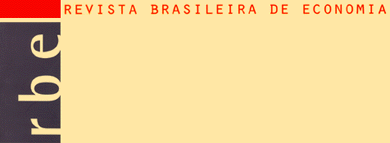This paper investigates whether political economy factors contribute to explain the exchange rate policy in Brazil from 1964 to 1997. An analytical framework presents the tradeoff between the positive effect of a depreciated exchange rate on the balance of payments and its negative effect on inflation as driving force affecting exchange rate policy. The exchange rate policy resulting from this tradeoff depends on the political environment. We test our hypotheses by modeling the exchange rate disequilibrium level as a Markov switching model with time varying transition probabilities, and the influence of political economy variables on the transition probabilities is tested. The results support partially the predictions of our analytical framework. According to our statistical results there is an election cycle: the probability of having an overvalued exchange rate is higher in the months preceding elections, while the probability of having an undervalued exchange rate is higher in the months succeeding elections.








